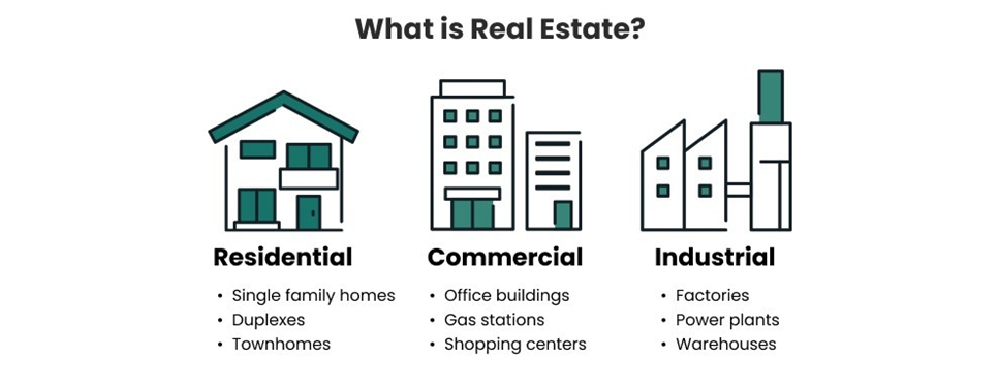HELOCs and home equity loans permit property owners to take advantage of their home equity to gain access to cash.
- HELOCs are revolving lines of credit permitting as-needed borrowing, while home equity loans are lump-sum loans.
- Depending upon your financial goals, either choice may be a great suitable for you. It's easy to obtain a HELOC or home equity loan online.
Home equity lines of credit (HELOCs) and home equity loans are comparable in that they both use methods to turn your home equity into money. However, these two financial tools are not the very same.

In this short article, you will get the answer to your a lot of pushing HELOC-vs-home-equity-loan questions, consisting of:
- What is home equity, and how do I access the cash value?
- Why would somebody borrow against their equity, and is it a good concept?
- How are HELOCs and home equity loans comparable?
- What is the difference in between a home equity loan and a HELOC?
- How can I decide between a HELOC vs. a home equity loan?
What Is Home Equity and How Is It Used?
Home equity is the distinction between the present market price of your home and how much you owe in mortgage debt on the home. This is the share of the home's worth that you own, rather than the share of the worth financed by the lender.
For instance, if your home is currently worth $400,000 and your principal mortgage balance is $100,000, you have $300,000 in home equity.
As a property owner, you can access a part of this equity by obtaining versus it through either a HELOC or a home equity loan.

Common Reasons To Borrow Against Your Equity
Before we go over the similarities and differences between a home equity loan and a credit line, here is a list of factors why house owners might pick to borrow versus their home equity:
- To cover an unanticipated expense (like car repairs or emergency medical costs, for instance).
- To finance home restorations or repairs.
- To maximize capital for the deposit on an investment residential or commercial property.
- To combine existing debts.
- To pay for college.
- To begin a business.
- To purchase a 2nd home or vacation residential or commercial property.
Whatever your factor, a HELOC or home equity loan can assist convert some of your home equity into cash.
Two Ways To Utilize Your Equity: The HELOC and the Home Equity Loan
HELOCs and home equity loans both enable you to borrow versus your home equity. They are similar in numerous ways, however they work differently in practice.
What HELOCs and Home Equity Loans Share
HELOCs and home equity loans share the following qualities.
Both Are Secured By Using Your Home as Collateral
It is essential to understand that your home is utilized as collateral when obtaining versus home equity. This implies that failure to repay the loan might potentially lead to a foreclosure by the lending institution. [1]
So, before choosing to obtain against your home equity, you ought to thoroughly weigh the need for the money and your capability to pay back the loan.
Both Require an Appraisal of Your Home
Since your home secures the loan, lenders require to confirm the value of your home before providing a HELOC or home equity loan. This is done through an official evaluation, most typically called an appraisal, which is finished by a certified home appraiser.
The appraisal process involves looking into recent sales of similar residential or commercial properties to approximate the current worth of a home. Sometimes, an appraiser may require a quick tour of the subject residential or commercial property to evaluate the current condition or verify upgrades that can boost the residential or commercial property's value. However, with so much info readily available online, such as the square footage, year built, and permits given, appraisals can frequently be finished virtually without an in-person examination.
The evaluated value of the home might affect the loan amount. This is because lending institutions have requirements relating to how much equity the property owner need to retain in the residential or commercial property, and the assessed worth directly affects home equity calculations.

Both Included Closing Costs
New loans and credit lines often come with closing costs. These costs consist of numerous costs and expenses, consisting of:
- Application charges,
- Appraisal costs,
- Loan origination fees,
- Document preparation costs,
- Title fees,
- Attorney costs, and
- Recording expenses.
Closing costs can vary widely from one loan to the next due to a number of aspects, including place, loan type, and loan amount.
It's crucial to keep in mind that you might not require to pay these closing costs expense. It may be possible to roll these expenses into the loan and repay them in time as part of your routine HELOC or home equity loan payments.
What Is the Difference Between a HELOC and a Home Equity Loan?
The main distinction in between a home equity loan and a home equity credit line is how loan profits are accessed. With a home equity loan, you get the quantity borrowed (minus any charges and costs) in a single swelling amount with an established repayment schedule.
But with a HELOC, you are given a line of credit that you can access as needed. Much the very same as utilizing a charge card, qualified borrowers are approved for a maximum credit line and can draw up to the predetermined limit. Borrowers pay back the amount made use of a monthly basis, as detailed by the regards to their HELOC contract. Monthly payments will vary based upon the impressive principal balance and the appropriate Annual Percentage Rate (APR). [2]
Another crucial distinction between a home equity loan vs. a line of credit is the rate of interest. Home equity loans generally offer flat (fixed) rate of interest, meaning the rate is locked in for the term of the loan. HELOCS, on the other hand, usually offer adjustable rate of interest that vary with changing market conditions. However, PNC Bank uses a Fixed-Rate HELOC for those who choose the flexibility of a HELOC with the stability of a set rates of interest.
What Are the Benefits and drawbacks of a HELOC?
There are a number of pros and cons of using your home equity for a line of credit. [3]
Advantages of a HELOC:
- You can obtain little increments as needed. This flexible system can assist you borrow only what you require and keep monthly payments workable.
- HELOCs usually include lower rate of interest and higher loan limitations than charge card.
- You may be able to get an interest-only (IO) HELOC. With an IO HELOC, only interest is due during the "draw period" (the designated time that you can access your equity).
- You might not require to start paying back the balance till the draw period closes and a repayment duration begins. This can mean low regular monthly payments during the draw duration, however it likewise suggests higher payments during the repayment period.
- Making on-time payments can boost your credit report over time.
Potential disadvantages of a HELOC:
- HELOCs generally have variable interest rates. If market rates rise, your monthly payment can increase.
- HELOC interest is no longer immediately tax-deductible as it was before 2017. Tax laws presently permit you to deduct just the portion of the loan that is used to fund home enhancements.
- Failure to pay back a HELOC can possibly result in foreclosure of the home.
- In addition to the closing expenses for establishing the line of credit, there might be continuous charges to preserve the credit limit
What Are the Advantages and Disadvantages of a Home Equity Loan?
Here are the benefits and drawbacks of home equity loans. [4]
Pros of a home equity loan:
- Home equity loans usually feature a fixed interest rate, which enables a predictable regular monthly payment.
- You get a lump sum that can be invested or invested as you please.
- There are no ongoing account upkeep charges or yearly costs.
- You won't have an open line of credit to motivate unneeded costs.
Potential drawbacks of a home equity loan:
- Borrowing too much might cause unneeded interest expenditures, and borrowing insufficient might need using for another loan.
- Failure to pay back the loan can possibly lead to foreclosure of the home.
- There might be fees for coming from the loan, plus other closing expenses. Costs for a home equity loan may be greater than the expenses of opening a HELOC
How To Decide Which Is Best for You
HELOC Benefits And Drawbacks
Pros Cons
Borrow little increments as required.
Often have variable rate of interest.
Lower rate of interest and higher loan limits than credit cards. Interest is no longer immediately tax-deductible.
On-time payments can increase your credit rating over time. Failure to pay back can potentially cause home foreclosures.
Home Equity Loan Benefits And Drawbacks
Pros Cons
Fixed rates of interest for predictable payments.
Could potentially obtain too much or too little.
Lump-sum amount. May cost more than opening a HELOC.
No on-going account maintenance charges or annual costs. Failure to pay back can potentially lead to home foreclosure.
HELOCs might be an excellent alternative for homeowners who: [5]
- Are uncertain just how much cash they will require to borrow.
- Don't require cash now however want an open credit line for emergency situations.
- Are willing and able to budget for variable rates of interest and altering balances.
Home equity loans may be a good alternative for house owners who: [5]
- Know precisely just how much money they require.
- Prefer the stability of repaired rates and a set up repayment plan.
How To Request a HELOC or Home Equity Loan
Once you decide which is the better suitable for you, a HELOC or a home equity loan, you can start the application procedure. Here are the five actions to using for a HELOC or home equity loan.
Step 1. Review Lender Requirements
Your lending institution wishes to make certain that you are economically able to handle extra debt. Lenders likewise check to see if you have enough equity in the home to obtain versus. Most lending institutions need that house owners keep at least 15-20% equity in their homes. [6]
Step 2. Gather Your Documents
To make an application for a loan against your home equity, you might need the following: [7]
- Government-issued evidence of recognition (a chauffeur's license, state ID, or passport).
- Proof of earnings (pay stubs, W2s, and/or income tax returns, as relevant, plus evidence of any retirement or supplemental income).
- Financial info about your residential or commercial property expenditures (mortgage statements, insurance coverage statements, and residential or commercial property tax expenses, as relevant).
Step 3. Complete the Application
The loan application will provide the lender with the details required to determine if a loan can be offered and in what quantity. You can complete the loan application online rapidly and easily with PNC Bank.
Step 4. Have Your Home Appraised
The appraisal figures out the residential or commercial property's current value, influencing the prospective loan quantity. In a lot of cases, a complete on-site appraisal is unneeded. Instead, the appraiser can gather information about the residential or commercial property online, along with information of equivalent homes that have actually just recently sold.
Step 5. Arrange the Closing Costs and Access Your Funds
The closing expenses for the loan can either be paid in advance or rolled into the expense of the loan. When paid in advance, you prevent interest charges on the amount of the closing costs. However, many customers want to pay the interest to avoid paying the fees upfront out of pocket.

Use Your Home Equity To Access Cash When You Need It
Building equity is one of the greatest advantages of homeownership. If you're prepared to convert some of your equity into money (or you just want to have an open credit line for emergencies), you can use for a HELOC online with PNC Bank today.








